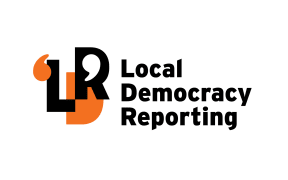South Auckland has been neglected since the formation of the Auckland super city in 2010, re-elected mayor Phil Goff admits.

Mr Goff has struggled to point to specific plans due for completion in South Auckland within the first year of his new term. Photo: RNZ/Rowan Quinn
And while a number of projects are underway in the region's south, Mr Goff has struggled to point to specific plans due for completion within the first year of his new term.
Mr Goff, who stormed to victory in October's election to secure three more years as New Zealand's second most powerful political leader, suggested the south had not been properly looked after since Auckland Council's formation nine years ago.
"I think that what you've had is a degree of neglect in the south and certainly you've got the greatest areas of disadvantage in the south," he said.
"We are part of one city, and this city has to be inclusive.
"It has to have networks that go right across the city because there'll be people that live in the south that work in the centre, there'll be people that travel from the centre out into the south."
The cost of housing and transport were the two biggest challenges faced by South Auckland ratepayers, Mr Goff said.
"I think it's getting more houses built to deal with shortage and unaffordability, [and] strengthening our transport network to stop ever-increasing congestion and gridlock," he said.
But asked what he would be able to point to as progress a year from now, the mayor did not give specific examples of projects deliverable within the next 12 months.
"The two big things I think are more housing, including social housing, and that's critical because you look what people spend as a percentage of their income on housing," he said.
"That's what is crippling and causes poverty."
Mr Goff pointed to Manukau's Barrowcliffe Place development, which, according to the council-owned development agency Panuku, would result in 300 new homes over the next five years.
Fifty percent of the dwellings were to be sold under an affordable housing scheme.
The mayor also mentioned non-council developments, such as Paerata Rise, a 300-hectare undertaking being completed by the Wesley College Trust Board and the Methodist Church-linked Grafton Downs.
That development opened to the public in December 2018 and promises 4500 homes over the next 20 years.
Meanwhile, Auckland Council in August approved "structure plans" for Drury and Pukekohe, which could see 34,500 homes developed there over 30 years.
Mr Goff also picked out Papakura, where the government has built houses as part of its Kiwibuild scheme, though axed Housing Minister Phil Twyford has said those homes were not aimed at low-income families because they may be unable to service a KiwiBuild mortgage.
The mayor also pointed to transport projects his council would deliver in South Auckland in the near future. Those included the Puhinui Rail Station Interchange, a $60 million project due for completion in 2021, as well as the completed Manukau Bus Station and a new Onehunga Transfer Station.
There was also $500m in the Auckland Transport Alignment Project to develop Mill Rd as an arterial route, though that work had not started.
"All of those things are infrastructure projects in and around the south and that's made a big difference," Mr Goff said.

Local Democracy Reporting is a public interest news service supported by RNZ, the Newspaper Publishers' Association and NZ On Air.


